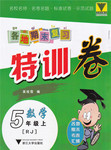题目内容
6.Getting rid of dirt,in the opinion of most people,is a good thing.However,there is nothing fixed about attitudes to dirt.In the early 16th century,people thought that dirt on the skin was a means to block out disease,as medical opinion had it that washing off dirt with hot water could open up the skin and let ills in.A particular danger was thought to lie in public baths.By 1538,the French king had closed the bath houses in his kingdom.So did the king of England in 1546.Thus began a long time when the rich and the poor in Europe lived with dirt in a friendly way.Henry IV,King of France,was famously dirty.Upon learning that a nobleman had taken a bath,the king ordered that,to avoid the attack of disease,the nobleman should not go out.
Though the belief in the merit of dirt was long-lived,dirt has no longer been regarded as a nice neighbor ever since the 18th century.Scientifically speaking,cleaning away dirt is good to health.Clean water supply and hand washing are practical means of preventing disease.Yet,it seems that standards of cleanliness have moved beyond science since World WarⅡ.Advertisements repeatedly sell the idea; clothes need to be whiter than white,cloths ever softer,surfaces to shine.Has the hate for dirt,however,gone too far?
Attitudes to dirt still differ hugely nowadays.Many first-time parents nervously try to warn their children off touching dirt,which might be responsible for the spread of disease.On the contrary,Mary Rucbush,an American immunologist(免疫学家),encourages children to play in the dirt to build up a strong immune system.And the latter position is gaining some ground.
64.The kings of France and England in the 16th century closed bath houses becauseC.
A.they lived healthily in a dirty environment.
B they thought bath houses were to dirty to stay in
C.they believed disease could be spread in public baths
D.they considered bathing as the cause of skin disease
65.Which of the following best describes Henry IV's attitude to bathing?A
A.Afraid B.Curious C.Approving D.Uninterested
66.How does the passage mainly develop?C
A.By providing examples.
B.By making comparisons.
C.By following the order of time.
D.By following the order of importance.
67.What is the author's purpose in writing the passage?D
A.To stress the role of dirt.
B.To introduce the history of dirt.
C.To call attention to the danger of dirt.
D.To present the change of views on dirt.
分析 本文主要讲述的是在历史的发展过程中,人们对于污垢的看法是在不停地发生着变化.在十六世纪初,人们认为,皮肤上的污垢是一种阻止疾病的手段,因为医学认为,用热水清洗污垢可以打开皮肤,让疾病进入.当时的英法国王甚至下令关闭了浴室.从十八世纪以来,污垢就不再被看作是一个好东西了,认为清除污垢对健康很好.现在人们对污垢的看法仍然不同,一些家长认为它会引起孩子生病,而警告孩子不要接触灰尘,然而免疫学家却鼓励孩子在尘土中玩耍,以建立一个强大的免疫系统.
解答 64.C 细节理解题.根据第二段的"as medical opinion had it that washing off dirt with hot water could open up the skin and let ills in.A particular danger was thought to lie in public baths."可知,他们认为疾病可能在公共浴室里传播,所以才下令关闭浴室.故选C.65.A 推理判断题.根据第二段的"Henry IV,King of France,was famously dirty.Upon learning that a nobleman had taken a bath,the king ordered that,to avoid the attack of disease,the nobleman should not go out."可知,当亨利四世听说有个贵族洗了澡,他下令为了避免疾病的发作,那个贵族不该出去.所以他很害怕洗澡,故选B.66.C 推理判断题.根据第二段In the early 16th century和 did the king of England in 1546.以及Henry IV,King of France,was famously dirty.可知,本文是按照时间的顺序来组织全文的.故选C.67.D 主旨大意题,纵观全文内容,尤其是第一段的"However,there is nothing fixed about attitudes to dirt."和最后一段的"Attitudes to dirt still differ hugely nowadays."可知,作者写这篇文章的目的是想陈述人们对污垢的看法的改变,故选D.
点评 本文是健康环保类阅读.考查学生对细节的理解把握和推理判断能力,做题时一定要找到文章中的原句,和题干进行比较,再做出正确选择.在做推理判断题时不要以个人的主观想象代替文章的事实,要根据文章事实进行合乎逻辑的推理判断.

 中考解读考点精练系列答案
中考解读考点精练系列答案 各地期末复习特训卷系列答案
各地期末复习特训卷系列答案| A. | everything | B. | something | C. | anything | D. | nothing |
| A. | once | B. | if | C. | after | D. | unless |
| A. | as three times big as | B. | three times as big as | ||
| C. | as big as three times | D. | as big three times as |
| A. | to | B. | for | C. | off | D. | out |
-______( )
| A. | It doesn't matter. | B. | No,go ahead. | ||
| C. | Yes,please. | D. | Never mind. |
| A. | Take | B. | Taking | C. | To take | D. | Taken |